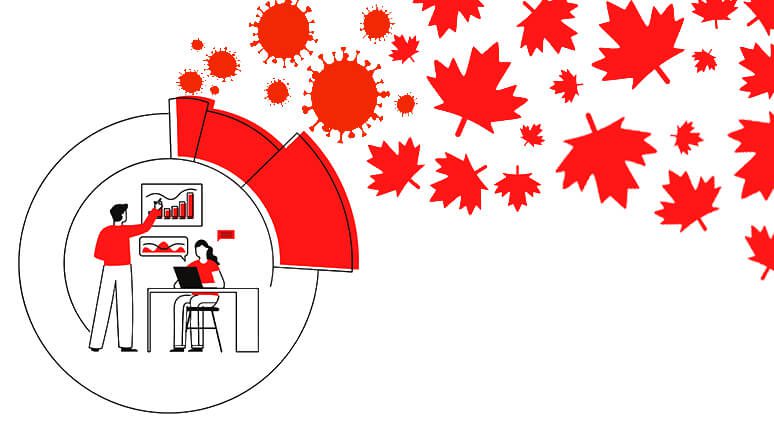 Canada is in a unique position to be a, if not the, world leader in preparedness. We now have an unprecedented opportunity to reframe our thinking of what a pandemic represents, and in so doing, we can potentially create a revolutionary and science-driven health economy. Here’s what we need to do, writes Harvey Schipper.
Canada is in a unique position to be a, if not the, world leader in preparedness. We now have an unprecedented opportunity to reframe our thinking of what a pandemic represents, and in so doing, we can potentially create a revolutionary and science-driven health economy. Here’s what we need to do, writes Harvey Schipper.
By Harvey Schipper, September 14, 2020
As we emerge from our first encounter with COVID-19, we are beginning to take stock of where we stand and what we have learned. It has been a humbling, at times quite frightening, and at other times even hopeful experience.
We have largely balanced the scientific, cultural and political imperatives, and apart from the catastrophe of our long-term care structure, we have done pretty well so far. Our fair performance comes in spite of the fact that we appear to have starved a world-leading epidemic early warning unit, our Global Pubic Health Intelligence Network, born out of SARS, just in time to miss the early signs of COVID.
Regardless, our successes and shortcomings present learning opportunities. We must look to the future with the clear understanding that this type of event will happen again, though in a form and from a direction we cannot fully anticipate. Each pandemic is unique, finding and exploiting the vulnerable niches in our societies.
Canada is in a unique position to be a, if not the, world leader in preparedness. We now have an unprecedented opportunity to reframe our thinking of what a pandemic represents, and in so doing, we can potentially create a revolutionary and science-driven health economy.
Here’s what we need to do.
First, we must develop a workable, broader pandemic model that allows consideration in real time of parameters beyond narrow single pathogen factors. This model would include all-causes of morbidity and mortality, geographic, and social and cultural factors, physical infrastructure contributors, and economics. It will be essential to develop a common language, so that the same words have the same meanings across disciplines and communication with the public is clear and predictable.
We also need to implement an early warning system that is globally accepted and transparent. In the rush to finger pointing, we have lost sight of the fact that the new virus was characterized within weeks of first recognition, a quantum leap in our scientific capability. We may already be on the cusp, by virtue of modern genetics, of characterizing the population and organ-specific risks of new pathogens by their genetic makeup. These technologies must be globally available and globally shared with clear procedures for notification.
Canada should lead in the advancement of global responsiveness and availability of essential tests and treatments. We need to push further innovations at the public-private-government interface with respect to intellectual property, financing and risk mitigation of new treatments.
To play a leadership role, we must also modernize our health care. This includes finding a public-private balance that drives innovation in health and wellness delivery. That means incenting systems to innovate and rewarding them for it. Government could have a role in rewarding novel healthcare innovations that produce effective outcomes for patients. Doing this will make our system more resilient, flexible, innovative, and responsive.
Moreover, Canada could pioneer the establishment of an international consortium of like-minded countries to provide the scientific, industrial, and financial means to respond to the next pandemic. While no middle power can do it all, a collective can.
In support of internationalizing our health economy, we would do well to identify and reinforce areas of our strength in respect to global health threats. It could be the production of medical technologies, or the manufacture of essential drugs, or the bridging of distance and cultures. Whatever the form of our comparative advantages, we ought to establish them early in this process.
Canada is uniquely well-suited to leading on this health economy project. Our biological and medical sciences expertise is, on a population and expenditure basis, world leading already. We just don’t capitalize on it. Also, our diversity both provides the test bed for new interventions and links to other countries that no other country can match. Moreover, as a middle power with a track record of trust and success in forging new concepts for global well-being (such as UN peace keeping and our founding leadership of the WHO) we have specific advantages in terms of engaging the international community.
What would be the effect of all this? If nothing else, we will transform what is now considered a 15 per cent cost sink to our economy into an economic engine of world-leading potential. It will create high value, sustainable jobs. It will attract risk investment to realms of enormous human promise. And ultimately, an unavoidable by-product of these efforts would be a next generation health system and resilient readiness for the next pandemic.
Harvey Schipper is a professor of medicine and adjunct professor of law at the University of Toronto. He is the author of a recent MLI commentary titled “How pandemic modelling failed policy-makers, and how to do better.”




